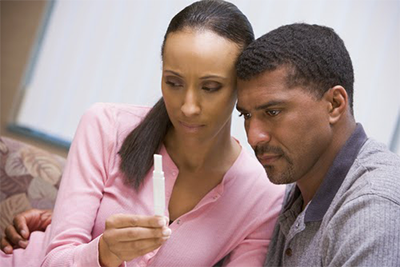How To Have A Baby When You Have Been Trying For A While
How To Have A Baby When You Have Been Trying For A While

If you’re wondering how to have a baby, especially if you’ve been trying for a while, the article below is for you.
Don’t Wait Too Long Before Getting Help: don’t hesitate to get help on time, or your odds for successful treatment may go down. Doctors recommend seeking help for fertility if… you’re 35 years old or younger and you’ve been unable to get pregnant after unprotected intercourse for at least one year; you’re over 35 years of age, and you have not been able to get pregnant after six months (because the chances for successful treatment rapidly decline after 35, so prompt diagnosis and treatment is important) or, if you’ve been able to get pregnant, but have had two or more consecutive miscarriages. If you have any symptoms of infertility earlier on, though, you don’t need to wait before speaking to your doctor.
Find A Fertility Doctor That’s Right For You: after you’ve decided to seek help, you may be wondering who to call. Your best bet is to start with your gynecologist. He can take a basic history, get started on some basic fertility testing, and refer you, if necessary, to a reproductive endocrinologist. Some gynecologists are comfortable with prescribing very basic fertility treatments, like Clomid. On the other hand, gynecologists who are not fertility doctors may not monitor treatments as closely, or they may not offer thorough testing before treatment.
Keep A Detailed Fertility Chart: begin tracking your cycles in detail; keeping a detailed fertility chart may help your doctor make a diagnosis faster. While you wait to see the fertility doctor, you may want to begin tracking your cycles, if you haven’t done so already. A few months of detailed fertility tracking can help your doctor detect anovulation or other female fertility symptoms, like a luteal phase defect. You’ll also need to know where you are in your cycles for certain fertility tests, and tracking your cycle will help you schedule tests with more ease.
Understanding Infertility Diagnosis And Testing: it’s normal to feel anxious about the results of your fertility tests. Don’t be shy about asking your doctor to explain the tests or results to you. In the fertility world, understanding the testing and diagnosis process can help you advocate for yourself, understand test results, and make smarter decisions about testing and treatment.
Men Need Fertility Testing, Too!
Fertility is not a female issue — it affects both men and women. It’s essential that both partners are tested. Since a woman typically sees her gynecologist to talk about fertility issues first, she is more likely to get at least basic fertility testing. But the male partner may sneak by unevaluated, especially if the gynecologist is focusing solely on the woman. Male infertility affects up to 50% of couples trying to conceive, with some couples having male factor infertility the sole issue and other couples having combined fertility problems. Some fertility treatments have little chance of working if sperm counts are low. If sperm counts are completely non-existent, treatment not taking this into account is doomed to failure.
Be An Informed Patient
Empower yourself with knowledge of fertility treatments. Read books, look at reliable sites online, ask your doctor questions, and speak to those who have experienced fertility issues. The more you know about fertility treatment options, the better you’ll be able to make treatment decisions.
Consider Complementary Medicine
Complementary medicine, meant to work alongside mainstream medicine, may be something to consider when you’re trying to get pregnant. Many fertility clinics are opening complementary medicine centers, so patients can get their acupuncture and yoga in the same place as their ultrasounds and embryo transfers. Yoga is one kind of mind body therapy that may help you cope with the stress of trying to conceive. Acupuncture is particularly popular, with some studies finding a higher rate of pregnancy success when coupled with IVF. (Other studies, however, have not found improved pregnancy rates).Mind-body medicine may be a good way to cope with the stress of fertility treatments. Mind-body therapies include things like meditation, cognitive behavioral therapy, guided imagery, support groups, yoga, and prayer.





